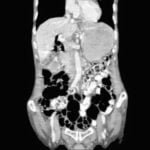
Inflation in New-born’s Nutritional Needs
Contributed by
Dt Quratul-Aan
(alfatah223@gmail.com)
| New-born’s revamp much greater speed from a proportionately regular speed within the womb to the random feed provided to them viz, Milk. The importance and necessity of the sole source of feed is of utmost importance that the first parameter of their growth monitoring mechanism, height and weight is determined by the quality of feed provided. The new-born’s increase their birth weight by about 6 months of their life and triple by completion of first year of birth .This is the most crucial period where child’s nutrition is mostly neglected. The infants are constantly in a process to lose their weight by consuming the deposited source of energy in them while they had it during foetal birth as a result of various factors such as immature skin ,kidneys etc. during first 15 days of their birth. A constant in suffice store of glycogen and fat reserve is present in preterm babies with low catabolism. NUTRITIONAL GOAL is the ultimate priority to achieve normal growth and development in both normal as well as preterm infants. Average energy in terms of kilocalories required by healthy babies is 90-120 kcal /kg/D, while 125-140kcal /kg/D is the energy required by preterm infants. Both the calorific values shows the continuous and dire need of calories to meet thee spendous rate of energy expenditure to be bearer by their bodies. .
The poor and ailing maternal and infant child health care in Kashmir forces more infant deaths. Within 15-20 days of their birth .Infant deaths occurring presents a challenge to health care system. In 21st century where we have better facilities and techniques of management but due to large scale non awareness about the most neglected and important component of human life “the food” presents a large scale challenge to our existing state of health affairs Resolvement of this public health issue needs crucial in-depth analysis. As a no of factors like illiteracy, low socioeconomic status , early marriages high parity ,poor sanitation ,hygiene and Nutrition ,poor access to health facilities are also contributing factors towards the infant mortality . Sanitation facilities at public health centres where women deliver are too much inadequate .women struggling to find lavatories after she is given laxative before childbirth. Out of all the responsible reasons that are likely to increase poor maternal nutrition and health status and manifold the chances of malnourished and preterm infants. Role of nutrition is of peak priority Eating foods that contain nutrients in suffice proportion is vital to a child’s prolonged healthy health. Proper nutrition fuels the development of a baby. Nutrition affects a baby’s physical growth and mental development including bone strength, brain development and stature. A healthy baby is more likely to have varied experiences that stimulate brain and aid in muscle development .An infant with poor health is at a risk of falling behind developmentally. Brain development impacts all areas off development, as it is linked to the quantity and variety of experiences that a child undergoes in infancy. If the energy intake is low, dietary protein cannot be synthesized fully for tissue synthesis hence azotemia can occur. 15-12 percent of daily calories must be met with proteins. CHO -Carbohydrates constitute 40-50 percent of total calories .Source of nutrition in all most all infant feed formulas or in mother’s milk as carbohydrate is lactose. For preterm infants carbohydrates should be 50 % glucose, 50 % lactose. Mothers’ milk contains water, fat, CHO, proteins, vitamin minerals, amino acids and enzymes. Since nature bestowed mother’s milk with a complete package of all essential nutrients that satisfies the need of her baby if and only mothers nutrition is balanced and appropriate endorsed.
FEED A MOTHER PROPERLY ———-IT LEADS TO A ROBUST CHILD GROWTH.
|
Join the mailing list!
Get the latest articles delivered right to your inbox!


